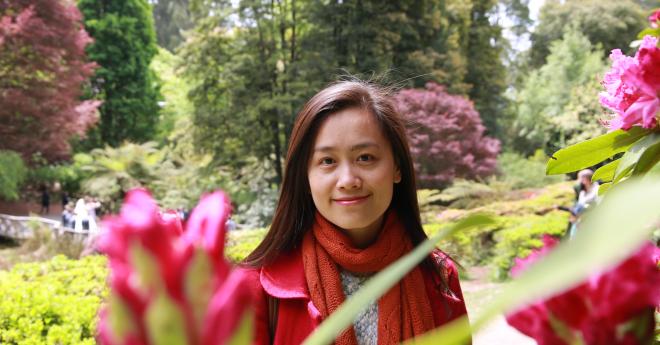| Year | Citation |
|---|---|
| 2025 | Webb, S., & Thi, Ngoc. (250101). Advancing the social role of college-based higher education: a systematic literature review. Journal of Vocational Education and Training, 77(1), (9-35). |
| 2024 | Thi, Ngoc., Van, Dyke., Spittle, M., Watt, A., & Smallridge, A. (241017). Micro-credentials through the eyes of employers: benefits, challenges and enablers of effectiveness. Education and Training, 66(7), (948-963). |
| 2024 | Ha, N. TN., Nhi, L. TP., & Trung, N. Q. (240101). Professional development for ethnic minority public leaders in the Northern mountain regions of Vietnam: needs and barriers to their participation. Professional Development in Education, |
| 2024 | McDonald, S., Ha, N. TN., Bilsland, C., Kok, S., & McClelland, R. (240101). Exploring Vietnamese student experiences of transitioning from high school into a transnational university. Journal of Further and Higher Education, 48(8), (741-756). |
| 2024 | Ha, N. TN., Tham, M., & Hurley, P. (240101). Process Quality in Early Childhood Education and Care in Australia: A Systematic Literature Review. Early Childhood Education Journal, |
| 2024 | Lavender, K., Knight, E., Hurley, P., & Nguyen, H. (240101). The future of tertiary education: Australia and beyond. International Journal of Training Research, 22(1), (1-4). |
| 2023 | Ha, N. TN., Hoang, C. H., Knight, E., & Hurley, P. (230101). What Drives International Students to Choose Australia as Their Tertiary Education Destination? A Synthesis of Empirical Evidence. Journal of International Students, 13(4), (146-168). |
| 2023 | Thi, Ngoc. (230101). Implementation of on-campus work-integrated learning activities in Vietnamese universities: don t rely on lecturers . Journal of Further and Higher Education, 47(8), (1124-1139). |
| 2023 | Thi, Ngoc., Spittle, M., Watt, A., & Van, Dyke. (230101). A systematic literature review of micro-credentials in higher education: a non-zero-sum game. Higher Education Research and Development, 42(6), (1527-1548). |
| 2022 | Thi, Ngoc., & Dakich, E. (220617). Student internship experiences: areas for improvement and student choices of internship practices. Education and Training, 64(4), (516-532). |
Key details
Areas of expertise
- Tertiary education
- Work-integrated learning
- International Education
- graduate employability
- Transition from education to work and vice versa
Available to supervise research students
Not available for media queries
About Ha Nguyen
Ha is a Research Fellow at the Mitchell Institute. Prior to this current position, she was a Research Fellow at the Education Innovation Hub, VU RISE, Victoria University. Ha has an internationally recognised research track record in tertiary education. Her current research interests also include graduate employability, university-industry partnership, international education, transition from education to work and vice versa.
Qualifications
- Doctor of Philosophy in Education, La Trobe University, Australia
- Master of Education, RMIT University, Australia
- Bachelor of International Relations (Hons), Diplomatic Academy of Vietnam, Vietnam
Key publications
Ha has over 16 publications, with a selection listed here.
A more comprehensive list of Ha's publications is available in the VU Research Repository.
Journal article (showing 10 of 14)
Research funding for the past 5 years
Supervision of research students at VU
Available to supervise research students
Not available for media queries
Currently supervised research students at VU
| No. of students | Study level | Role |
|---|---|---|
| 1 | PhD | Associate supervisor |
Currently supervised research students at VU
| Students & level | Role |
|---|---|
| PhD (1) | Associate supervisor |
Key academic roles
| Dates | Role | Department / Organisation |
|---|---|---|
| Jan 2023 - Present |
Research Fellow
|
Mitchell Institute |
| Nov 2021 - Dec 2022 |
Research Fellow
|
Education Innovation Hub, VU RISE |
| Dates | Role & Department/Organisation |
|---|---|
| Jan 2023 -
Present
|
Research Fellow
Mitchell Institute |
| Nov 2021 -
Dec 2022
|
Research Fellow
Education Innovation Hub, VU RISE |
Awards
| Year | Award |
|---|---|
| 2016 |
La Trobe Postgraduate Research Scholarship and La Trobe International Full Fee Research Scholarship - La Trobe University, Australia |
Professional memberships
- Member, Australian association of research in education
Media appearances
05th November 2023
Gonski for universities: what if we funded higher education like schools?
Australia currently has a needs-based model for schools. This was introduced as part of the “Gonski” reforms a decade ago and is called the “Schooling Resources Standard”. In our paper we explored what would happen if a model similar the Schooling Resource Standard was introduced in Australian universities. We found a needs-based funding model, using the same parameters as the Schooling Resource Standard, would see an overall 11% increase in base funding amounts to universities for government-funded students. We estimate this would mean about an extra A$1.3 billion per year in federal government funding.


